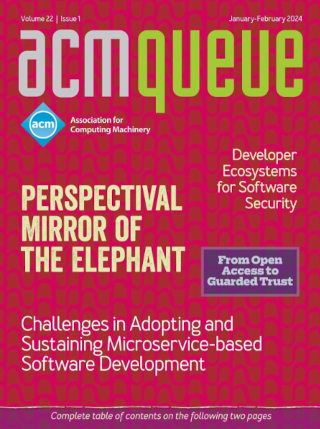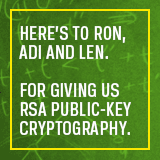
Developer Ecosystems for Software Safety:
Continuous assurance at scale
How to design and implement information systems so that they are safe and secure is a complex topic. Both high-level design principles and implementation guidance for software safety and security are well established and broadly accepted. For example, Jerome Saltzer and Michael Schroeder's seminal overview of principles of secure design was published almost 50 years ago, and various community and governmental bodies have published comprehensive best practices about how to avoid common software weaknesses. This article argues, based on experience at Google, that focusing on developer ecosystems is both practical and effective, and can achieve a drastic reduction in the rate of common classes of defects across hundreds of applications being developed by thousands of developers.
From Open Access to Guarded Trust:
Experimenting responsibly in the age of data privacy
The last decade witnessed the emergence and strengthening of data protection regulations. For software engineers, this new era poses a unique challenge: How do you maintain the precision and efficacy of your platforms when complete data access, one of your most potent tools, is gradually being taken off the table? The mission is clear: Reinvent the toolkit. The way we perceive, handle, and experiment with data needs a drastic overhaul to navigate this brave new world.
Give Your Project a Name:
It goes a long way toward creating a cohesive team with strong morale.
While some people are driven by infinite backlogs and iteration, others prefer launches and deadlines. Over the years, I have found certain milestones to be instrumental in creating a cohesive team with strong morale. When people have to work together to get through a challenging task, reaching those milestones brings them together.
Free and Open Source Software - and Other Market Failures:
Open source is not a goal as much as a means to an end.
Open source was not so much the goal itself as a means to an end, which is freedom: freedom to fix broken things, freedom from people who thought they could clutch the source code tightly and wield our ignorance of it as a weapon to force us all to pay for and run Windows Vista. But the FOSS movement has won what it wanted, and no matter how much oldsters dream about their glorious days as young revolutionaries, it is not coming back, because the frustrations and anger of IT in 2024 are entirely different from those of 1991.
Challenges in Adopting and Sustaining Microservice-based Software Development:
Organizational challenges can be more difficult than technical ones.
MS (microservice) has become the latest buzzword in software development. The MS approach to software development offers an alternative to the conventional monolith style. While benefits of MS-based development over monolith style are clear, industry experts agree that neither style provides an absolute advantage in all situations. Proponents contend that an MS approach to software development more readily facilitates mapping organizational changes manifesting from a more dynamic business environment to corresponding IT/IS (information technology/information systems) changes. This article identifies key challenges from the initial decision to adopt MSs to the ongoing task of sustaining the new paradigm over the long haul. It aims to provide insights to those considering MS-based software development.
Software Drift:
Open source forking
Since the systems have a common parent, they probably work in the same technical domain, and therefore the features and fixes that are going to be added are probably similar. KV happens to have an example case at hand: two operating systems that diverged before they added SMP (symmetric multiprocessing) support. When an operating system adds SMP to an existing kernel, the first thing we think of is locks, those handy-dandy little performance killers that we've all been sprinkling around our code since the end of Dennard scaling.
A "Perspectival" Mirror of the Elephant:
Investigating language bias on Google, ChatGPT, YouTube, and Wikipedia
Many people turn to Internet-based, software platforms such as Google, YouTube, Wikipedia, and more recently ChatGPT to find the answers to their questions. Most people tend to trust Google Search when it states that its mission is to deliver information from "many angles so you can form your own understanding of the world." Yet, our work finds that queries involving complex topics yield results focused on a narrow set of culturally dominant views, and these views are correlated with the language used in the search phrase. We call this phenomenon language bias, and this article shows how it occurs using the example of two complex topics: Buddhism and liberalism. Language bias sets a strong yet invisible cultural barrier online with serious socio-political implications for how these platforms hinder efforts to reach across societal divides.





